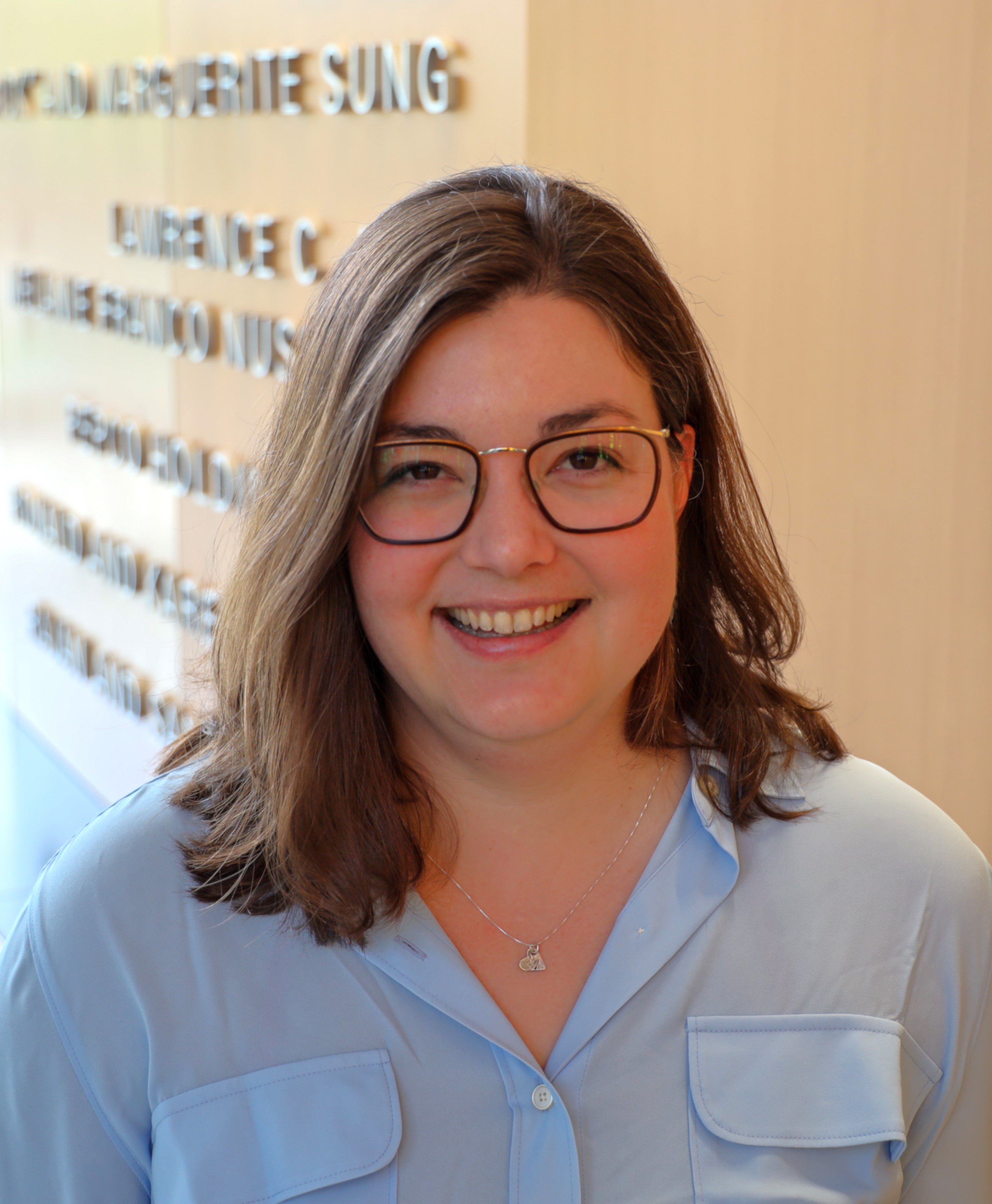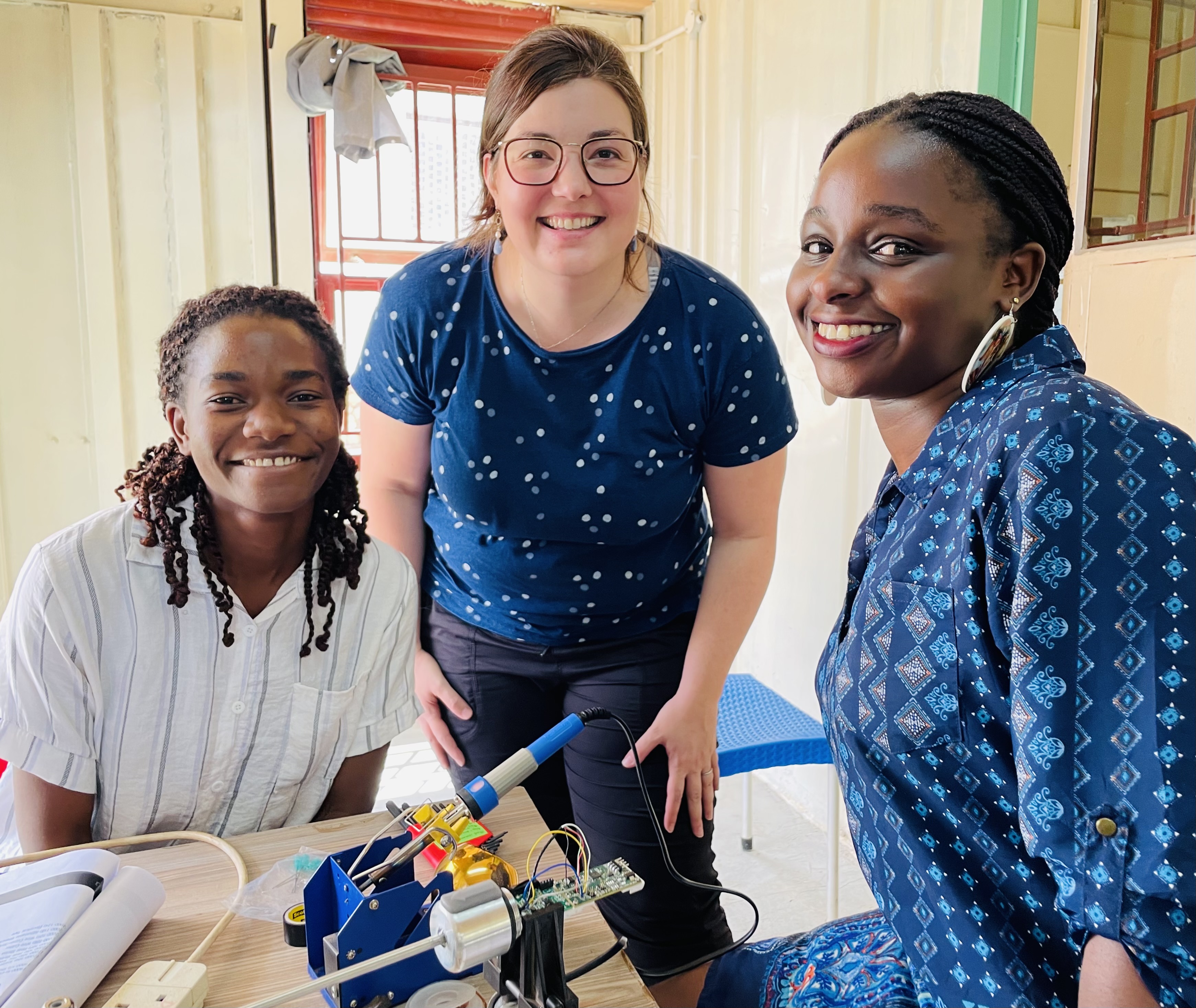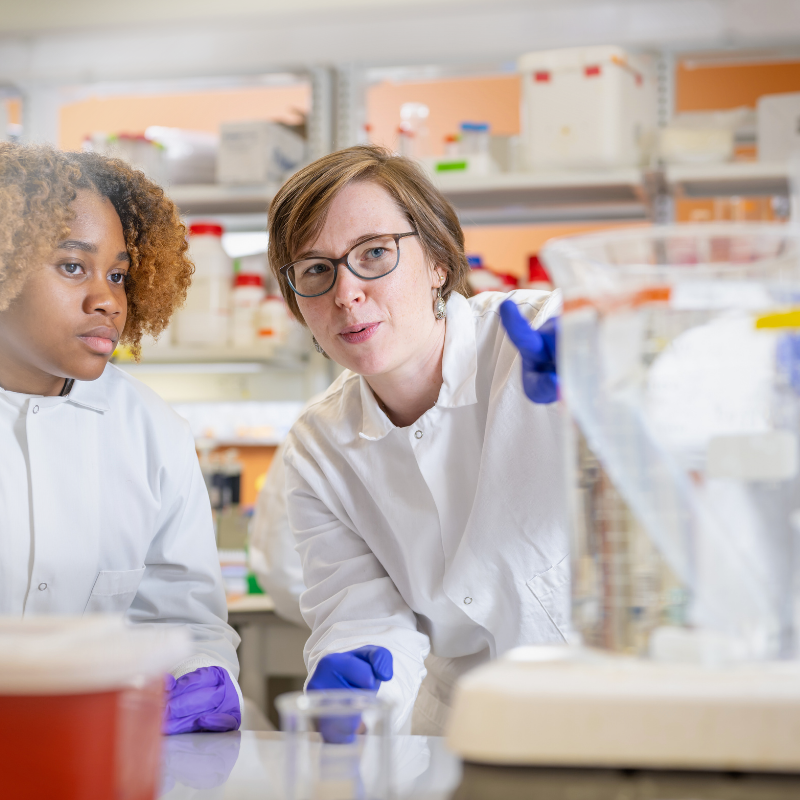News Story
Jenna Mueller Receives 2025 SPIE Early Career Achievement Award

Fischell Department of Bioengineering (BIOE) Assistant Professor and an Affiliate Fellow of the Robert E. Fischell Institute for Biomedical Devices (Fischell Institute), Jenna Mueller was named a recipient of the 2025 Society of Photo-Optical Instrumentation Engineers (SPIE) Society Awards, earning the Early Career Achievement Award for her translational work in biophotonics. The award annually recognizes 21 early-career professionals who have made exceptional contributions to optics and photonics, with a focus on innovation and global impact.
As principal investigator of the Global Biomedical Devices Lab, Mueller has led projects aimed at improving healthcare in low- and middle-income countries (LMICs), where over 70% of cancer-related deaths occur due to limited access to basic cancer diagnosis and treatment services. Her lab focuses on developing safe, affordable diagnostic and therapeutic technologies to improve cancer management, particularly for early detectable cancers like cervical, oral, breast, and colorectal cancers, which have high cure rates when detected and treated early. She developed the Pocket colposcope, a low-cost device for cervical dysplasia screening, which is the precursor to cervical cancer. Mueller is now collaborating with REFI to develop the KeyScope laparoscope, which aims to enable affordable laparoscopic surgery to treat a variety of cancers and other conditions in LMICs.
“There can be so many challenges and roadblocks on the healthcare innovation highway. My advice is to just keep going. If you run out of road, build more. Those coming after you will be so grateful.”
-Jenna Mueller

One of the significant hurdles Mueller has encountered in her research is navigating the process of bringing low-cost medical devices to global health markets. Uganda, where Mueller has a key collaboration with Dr. Robert Ssekitoleko, Head of Biomedical Engineering at Makerere University, currently lacks an established regulatory pathway for medical devices. In addition to developing the KeyScope, Mueller is working with Ssekitoleko to establish a medical device regulatory pathway with the Ugandan National Drug Authority. This pathway aims to standardize the approval process for innovative devices like the KeyScope, ensuring their safety and efficacy. In the long term, this initiative is expected to empower Ugandans to make and service medical devices locally.
Mueller’s inspiration for biomedical innovation dates back to her undergraduate years at Rice University. She participated in a program led by Dr. Rebecca Richards-Kortum, now known as Rice 360°, which aims to apply bioengineering coursework to solve global health challenges. This experience encouraged Mueller to focus on healthcare challenges in underserved regions. During her doctoral studies at Duke University, she expanded on this passion under the mentorship of Dr. Nimmi Ramanujam. There, she contributed to cervical cancer prevention initiatives in LMICs. Reflecting on these experiences, Mueller emphasizes the importance of multidisciplinary, international collaborations in driving impactful healthcare solutions.
“There can be so many challenges and roadblocks on the healthcare innovation highway. My advice is to just keep going,” says Mueller. “If you run out of road, build more. Those coming after you will be so grateful.”
Published January 28, 2025








